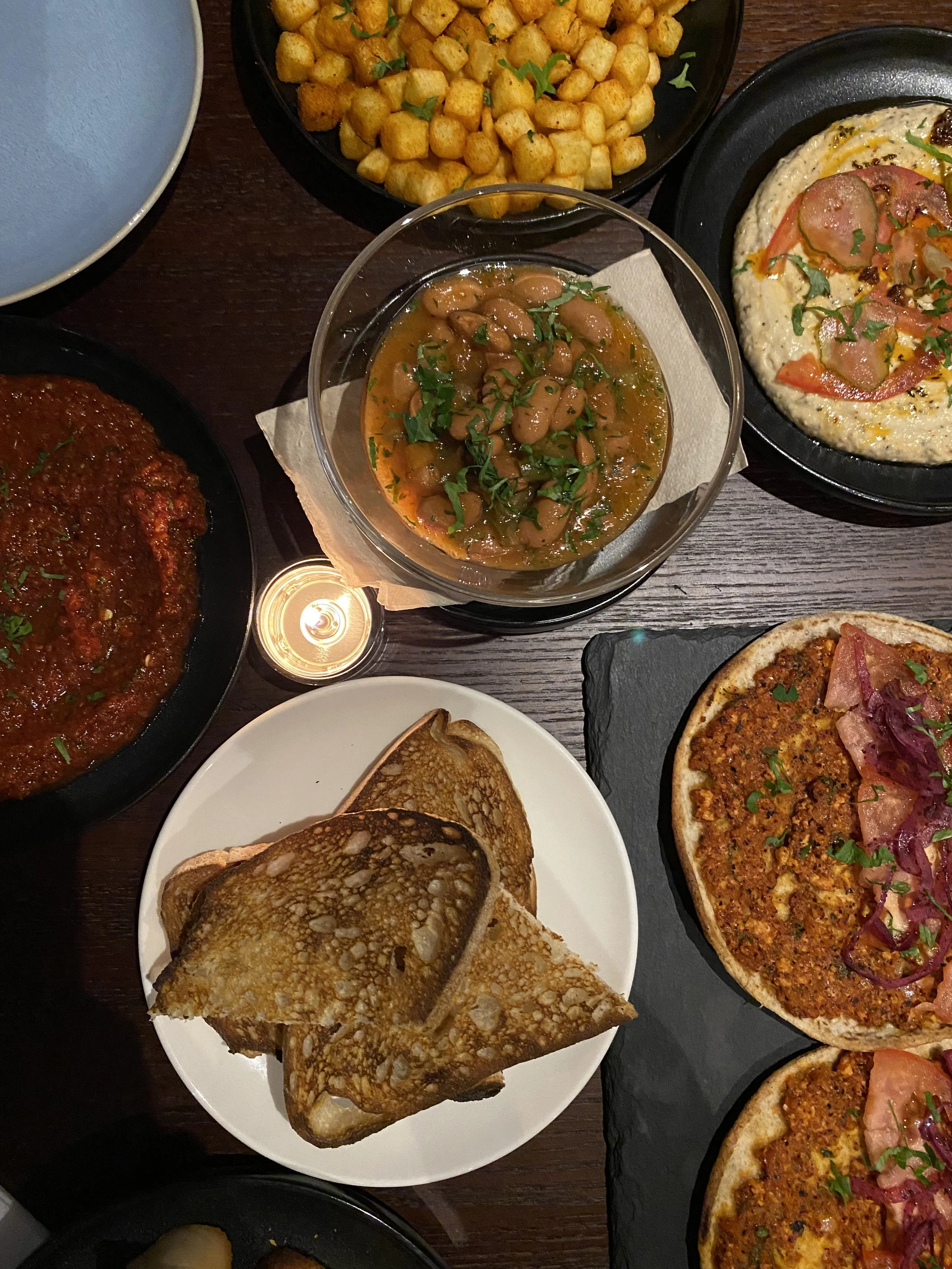Schrödinger’s Sexy Woman, the Manosphere & Margot Robbie: Misogyny is On The Rise
Cast your mind back to the early 2010s. Team GB had nailed the London Olympics, we were still going clubbing in business casual outfits, and the “manosphere”was something most of us hadn’t heard of. On the contrary, “Me Too” was the movement of the moment, and we finally seemed to be moving past the days of aspirational misogyny.
A lot has changed in a decade.
Misogyny is on the rise in soft and hard forms (pun not intended). Schools are having to put policies in place to protect female students and teachers, and combat increasing extremist beliefs among boys. Men are building online empires on the back of their own self-proclaimed misogyny, being charged with multiple counts of rape and sexual assault in the process. It seems like the tide of publicly hating women has firmly turned, and the severity is only getting worse. Most frustratingly, it feels like it’s come out of nowhere, with only the muddiest collective of the “manosphere” to blame.
In the most general terms, the manosphere is the collective noun for websites, blogs, online forums and communities which promote so-called “traditional” masculinity and misogyny. Part of the men’s liberation movement which began in the 1970s, the manosphere is a broad church in the worst possible way, welcoming incels (involuntary celibates), pick-up artists, fathers’ rights groups, and men’s rights activists.
Although incels – known for not procreating – and fathers – known for having procreated – don’t seem to have much in common, they are united, ironically, by “taking the red pill”. In other words, they believe that society is biased against men because of feminism, which is grooming girls and women. The irony here is that taking the red pill and enlightening yourself is a metaphor from The Matrix, written and directed by two trans women. But let’s not dwell on that.
The ins and outs of the manosphere are as depressing as they are fascinating. Fortunately, other people have explained the phenomenon and its various subgroups, saving me a job and no small word-count. For a dive into what incels are and the collective’s origins, start with Natalie Wynn aka ContraPoints’s video here (in fact, just go and watch all of Natalie’s videos). For a dissection of so-called alpha males, Gamergate, and all kinds of online feminism, check out Lily O’Farrell’s illustrations (vulgadrawings on Instagram) and podcast (No Worries If Not! wherever you get your podcasts).
Rather than trying to unpick the threads of the massive tangled web, I invite you to join me in examining one of the core tenets of the doctrine of the manosphere; like any good doctrine, the manosphere’s is, of course, threefold. Men are superior to women. Women should submit to men. And the most important thing a woman can possibly do is be sexy.
Picture, if you will, the ideal beautiful woman. By the Anglo-American standards of our media culture, at least, she is probably blonde, blue-eyed, slim, and smiley. In other words, she looks like Margot Robbie.
And boy, oh boy, did men think Margot was sexy. According to LadBible, Margot and her legs have the dubious honour of being the most paused scene in any film. The iconic scene from Wolf of Wall Street sees Margot seducing her (much older) on-screen husband in a nursery. Her bathtub cameo in 2016’s The Big Short brought similar plaudits, with male commenters online vowing that they would listen to her talk about anything, as long as she was naked. Who knew that was the way to explain subprime mortgages? Robbie’s turn as Harley Quinn was well received to say the least, at least in her first outing in Suicide Squad. Beautiful, talented, and now playing the perfect manic pixie dream girl, Margot Robbie was poster girl number one. A bona fide babe.
But in the space of seven short years, the same group of terminally online men changed their tune. After further consideration, they concluded that Robbie was not really that hot. She was mid at best, had clearly had work done, and , even more than that, she was “actively ugly”.
Which really begs the question, what are these people on?
Personal taste aside, anyone with eyes can see that Margot Robbie fulfils almost every beauty standard in the Western world. Long, blonde hair? Check. Big blue eyes? Double check. Perfectly straight, white teeth, made extra shiny by the perfect sun-kissed glow of her skin? Check and check again. Naturally, she is also tall and slim, slender legged, and always impeccably dressed. In comparison to most non-millionaire, non-celebrity women, she is unattainably beautiful. But according to men on the internet, she is barely worth a second glance.
Perhaps the secret to Margot’s devaluation on the sexy charts is less to do with her appearance (although we will come back to it later), and instead because of a little thing called feminism, or at the very least, female independence.
Together with her husband, Robbie is behind LuckyChap Entertainment, a twenty-five time Oscar nominated production company which deliberately sets out to make “female-focused” film and TV. From Promising Young Woman (2021), a female rage imbued look at the horrible power and trauma of sexual assault, to the cultural behemoth that is Barbie (2023), Robbie has repeatedly delivered on stories which prioritise women.
Another LuckyChap-co-produced piece was 2020’s Birds of Prey (And the Fantabulous Emancipation of One Harley Quinn). And it is here that we find the most important character in the story of Margot Robbie’s supposed de-sexyfying; Harley Quinn.
Harley Quinn, aka Dr. Harleen Frances Quinzel, is a DC Comics character best known for being the “hench wench” slash sex kitten to the Joker. The sexualisation of her character was so entrenched in comic book culture that in 2013, DC Comics ran a competition to “break into comics” by drawing Harley Quinn naked, in the bath, about to commit suicide.
Robbie’s first turn as Harley Quinn in 2016’s Suicide Squad played along with the sexy-but-psycho characterisation of Quinn, complete with micro-shorts and Daddy’s Little Monster t-shirt. So iconic was this portrayal, that Harley became the most popular Halloween costume in the USA and the UK in 2016.
In stark contrast, Robbie’s second outing in Birds of Prey was a massive step away from the hyper-sexualised, manic pixie dream girl version of Harley Quinn. Instead of stripping in front of a crowd of men and coming when the Joker whistles for her, Birds of Prey’s Harley wears bright yellow dungarees and says things like “behind every successful man, there’s a badass broad.” In other words, she is loud, liberated, and explicitly emancipated.
The massive contrast between Robbie’s portrayals of Harley Quinn in Suicide Squad and Birds of Prey can be explained by the difference between the male gaze and the female gaze. The Suicide Squad portrayal of Harley is eye candy for the male supervillains as well as the (predominantly) male audience, but the Birds of Prey Harley is firmly for the girls. Gone are the weirdly lingering butt shots and the coy innuendos. Instead, we get roller derby, excellent yet practical outfits, and passionate statements about women’s self-determination.
The result of Robbie’s deliberate fuck you to the male gaze that underpinned so many superhero/villain movies was, unsurprisingly, some pretty vitriolic hatred towards her. Immediately the men of the manosphere decided that she was no longer sexy. In fact, she had never been sexy in the first place. In fact, anyone who watched Birds of Prey was not only watching an ageing, unattractive woman make a bad movie, they were cucks, succumbing to the SJWfication of the once pure medium of comic book adaptations.
There are bigger problems in the world than bad adaptations of original materials, I fear. If that were truly the core issue for the Margot haters, they would spend more time raging about the bland, characterless adaptation of Katara in Netflix’s recent The Last Airbender, right?
Margot Robbie’s Schroedinger-esque sexiness – at once sexy and unsexy, depending on which film you press “play” to – encapsulates something more important. A multi-millionaire, talented actress/producer/director like Margot, or a billionaire singer-songwriter like Taylor Swift, can take a break from work without worrying about making ends meet, and can build a protective network around themselves where they are safe.
The vast majority of women and girls– particularly women of colour, queer women, trans women, or non-binary people who present femme – are the target of the same doctrine of misogyny and male anger, but without the wealth to protect themselves. The manosphere is not just made of idle words of validation and conciliation between lonely men online, it is a real world threat. In the UK, women and girls are at our lowest happiness level since 2009. Offences against women and girls have risen by 37% in five years, with perpetrators getting younger and younger.
There is no straightforward answer to fixing society’s ills, although there are still reasons to be hopeful. The list of charities and initiatives working to combat violence against women and girls and to support men and boys who feel disaffected and left behind goes on and on. Groups like School of Sex Ed are working tirelessly to improve kids’ and teens’ understanding of sex, power, and relationships. And women like Margot Robbie exist, actively supporting women’s stories and careers in the film industry.
To rewrite a quote from Natasha Walter’s (excellent) book, Living Dolls: The Return of Sexism, the dream that feminists first spoke about over two hundred years ago is still urging us on. Women can and should aim to realise their full potential, even if that means taking inspiration from a particular pink and smiling doll, played by a particular blonde and beautiful woman.
Written by Beth Price
Beth is a writer and educator based in Edinburgh. She is currently working on a PhD, exploring how gender and feminism is influenced by media and colonialism. When she’s not writing, she is usually found drinking good coffee, eating good food, or playing with her cat, who is only good when he’s asleep.




